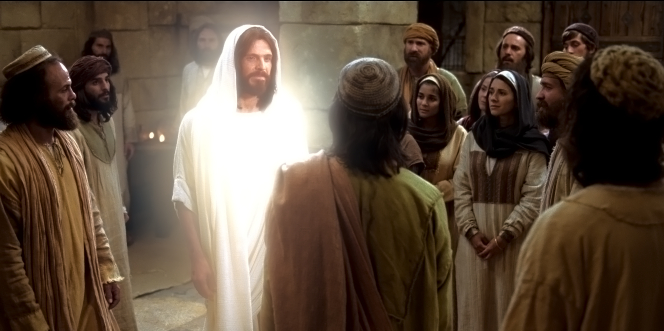Each year, about 56.6 million people die worldwide. Most, if not all, of us have experienced the passing of people we care about. I know how hard it is to go to the funeral of someone I love. Encountering death naturally leads us to ask the following question: Is death the end of life? Yes, our physical bodies stop working when we die. However, the Google dictionary defines life as "the existence of an individual human being or animal." So, my question remains. Do we continue to exist after mortality, or does death lead to our ultimate annihilation?

Unfortunately, 28% of Americans believe there is no heaven, no place of eternal rest when this life is over, no place for us to be reunited and dwell in happiness with our families again. What a gloomy perspective to have! How can anyone cope with a loved one's death without the hope and joy that comes from believing in heaven?
One thing that stuck out to me as I looked at the aforementioned survey results was this: More members of the Church of the Church of Jesus Christ of Latter-day Saints (commonly referred to as "Mormons") believe in heaven than members of any other major religious denomination. Why do Mormons believe in heaven? How does it benefit us? How can you or anyone else come to know death is not the end?
Our belief in heaven is centered in our belief in Jesus Christ as our Savior and Redeemer. We believe our Lord Jesus was hoisted on a cross at Golgotha over 2000 years ago and was "slain for the sins of the world (Book of Mormon, 1 Nephi 11:33)." However, He was the literal Son of God and had consequently inherited divine power over death. To Christ, death had no sting; the grave had no victory (Holy Bible, 1 Corinthians 15:55). On the third day of His martyrdom, our Savior and God triumphantly attained unto the resurrection of the dead. In other words, His body and spirit (commonly referred to as a soul) were reunited.
This great act made it possible for all of us to live again after this life. We jubilantly declare with the ancient prophet Job: "I know that my Redeemer liveth, and that He shall stand at the latter day upon the earth. And though after my skin worms destroy my body, yet in my flesh shall I see God (Holy Bible, Job 19:25-26)." The promise of a physical resurrection is extended to every human who has, does, or will dwell on this planet. The Apostle Paul taught "in Christ shall all be made alive (Holy Bible, 1 Corinthians 15:22)."
Knowing there is life after death has helped me a lot. I would like to share one of my Facebook posts from about a year and one-half ago:Not long ago, a friend of mine passed on. However, there were no tears in my eyes; I felt no sadness. Rather, I felt complete peace. My knowledge of God's plan of salvation brought me joy in times of trouble. I know where we came from, what the purpose of life is, and where we are going after this life.If you are unsure whether or not there is a life after death, there is a way to find out. To find out, you need to put yourself in a situation where you can have a spiritual experience, and then you need to be willing to listen for God's answer to you. This can sound a little confusing if you haven't had such an experience before; it's kind of like how it is hard for a color blind person to understand what the color yellow looks like. Let me explain what I mean by allowing yourself to have a spiritual experience. Then I will explain what I mean by listening.
There are a variety of ways you can allow yourself to have a spiritual experience. I often have them when I am offering sincere prayers to God, reading from the Holy Bible or Book of Mormon, or attending church. I also often have them when I am in nature pondering on the greatness of God's creation or when I am visiting religious historic sites and considering why spiritual leaders have done what they have. These activities help to connect me to God. Once I have this spiritual connection, I am in a position where He can teach me.

For example, earlier this month I went to Nauvoo, Illinois for a few days. This is an important religious site for Mormons since it is a place where thousands of the early church members lived. While there, my family visited Carthage jail where Joseph Smith, a Mormon prophet, was killed by a mob that stormed the jail. I thought about how Joseph knew that many people were threatening to kill him if he didn't denounce himself as a prophet and the Book of Mormon as the word of God, yet he would not. How can someone love God more than death? I could feel God's power reaffirming to my soul that Joseph knew death was not the end of existence, and he would be rewarded for staying true to what God wanted him to do. This strengthened my faith in there being a life after death.
It is possible to have a spiritual experience but not recognize it. We are used to listening to the big voices of politics, advertising, and social media, but God speaks to us in a still, small voice through our thoughts and feelings. We need to be attentive and willing to learn. But. I can testify that if you do those things which will enable you to have spiritual experiences and listen for God's answers, you will come to know as I do that God lives and loves you and has provided a way for you to return to His presence and live with Him after this life is over. Coming to know this may take time and effort, but it is within your reach. Seek for this knowledge.


